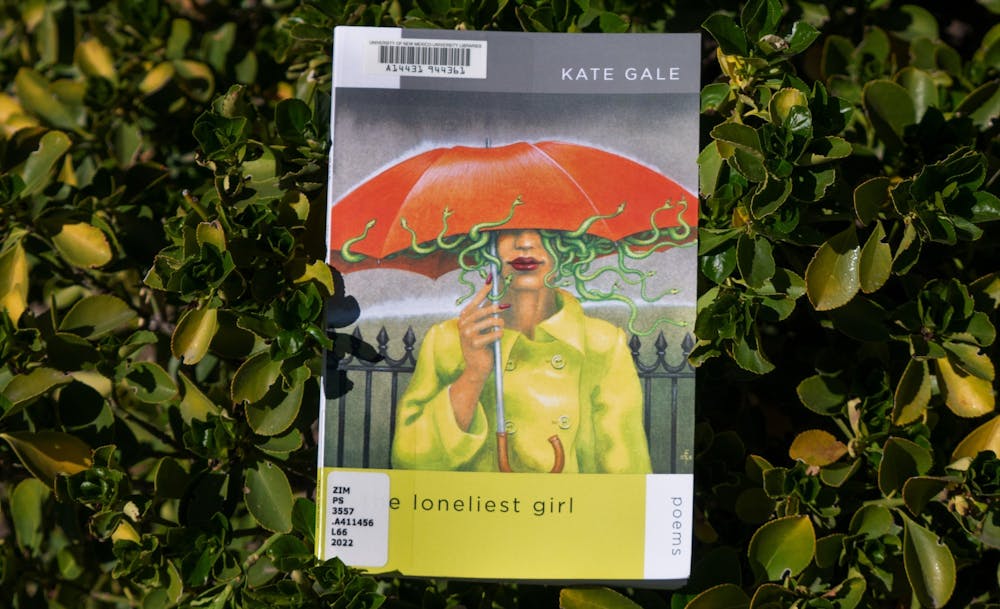Kate Gale’s “The Loneliest Girl,” published earlier this year by the University of New Mexico Press, is a book of poems that address sexual violence and the interactions that enforce and encourage it. Gale adds softness and depth to the well-known myth of Medusa — the Gorgon who was transformed into a monster through a rape by Poseidon — rendering her as a vulnerable woman seeking healing.
The best works in this collection are the short and sensory pieces, like “Medusa’s Cookbook,” which includes lines such as “cloves — an unopened flower bud/cinnamon — a spiraled brown quill.” These poems flesh out Medusa’s physical world, removing the mythic and aligning us with her as an individual.
In “Shame,” the speaker ignores messages about not eating, and Gale renders this in delicious, vivid detail: “By age ten: pine sap, cat and dog food, hay, grass, dandelions/clover, wild chives, tree bark, mold.”
Another favorite of mine was “Under the Goblin Moon,” in which Gale presents different caricatures of Medusa and ends with her truth, spurning the lies told about her in various forms of media: “Do you know what my sisters and I do at night? / We dance ourselves divine under the goblin moon.”
Despite some of these stunners, as a reader, I felt isolated from these poems. Although harmful, sexist rhetoric is used here to show how damaging it is, there isn’t much presented to counter it other than the beautiful last stanza, which concludes the collection with the hopeful sentiment: “In my dreams, I stumble towards grace.”
It can be hard to relate to femininity, which is why I chose to review this over other UNM Press books published this year. Reading this book, I felt that the work equates womanhood with victimhood in a way that is hard to separate.
For example, the first poem in the collection is titled “There are ten things you need to know to be a woman.” It is a numbered list of attacks, both physical and mental, that the speaker has undergone. Each stanza has echoes of the phrase: “They come for you.”
This opener operates as a good summary of what the rest of the collection consists of: a rough outline of sexism. At times, reading these poems feels like a recap of the experience of misogyny one has experienced in their life, especially in “You Won’t Amount to Much” with the line, “As it turns out, you won’t amount to much if / you’re fat / you’re ugly … you can’t cook and serve / you can’t win and please.”
Perhaps the most painful poem in this slim volume is the titular one, “The Loneliest Girl.” It’s an anthem for women whose suffering causes others to reject them, both men and women alike. The speaker of the poem repeats the phrase, “She never,” and the reader never has to complete the sentence; we understand that her loss is insurmountable, that it prevents her from the experiences she deserves to have.
Even though I failed to connect with these poems, I know they could be a powerful source of insight and healing to others. Gale’s economy of language is striking; she plays with pain and pleasure in equal parts, showing us dark and light in turn, sometimes literally, like in “Story of Light.”
Reading these pieces won’t turn you into stone, but they will certainly immobilize you; they will make you bear witness.
Nell Johnson is a freelance reporter for the Daily Lobo. She can be reached on Twitter @peachnells or at culture@dailylobo.com
Get content from The Daily Lobo delivered to your inbox






